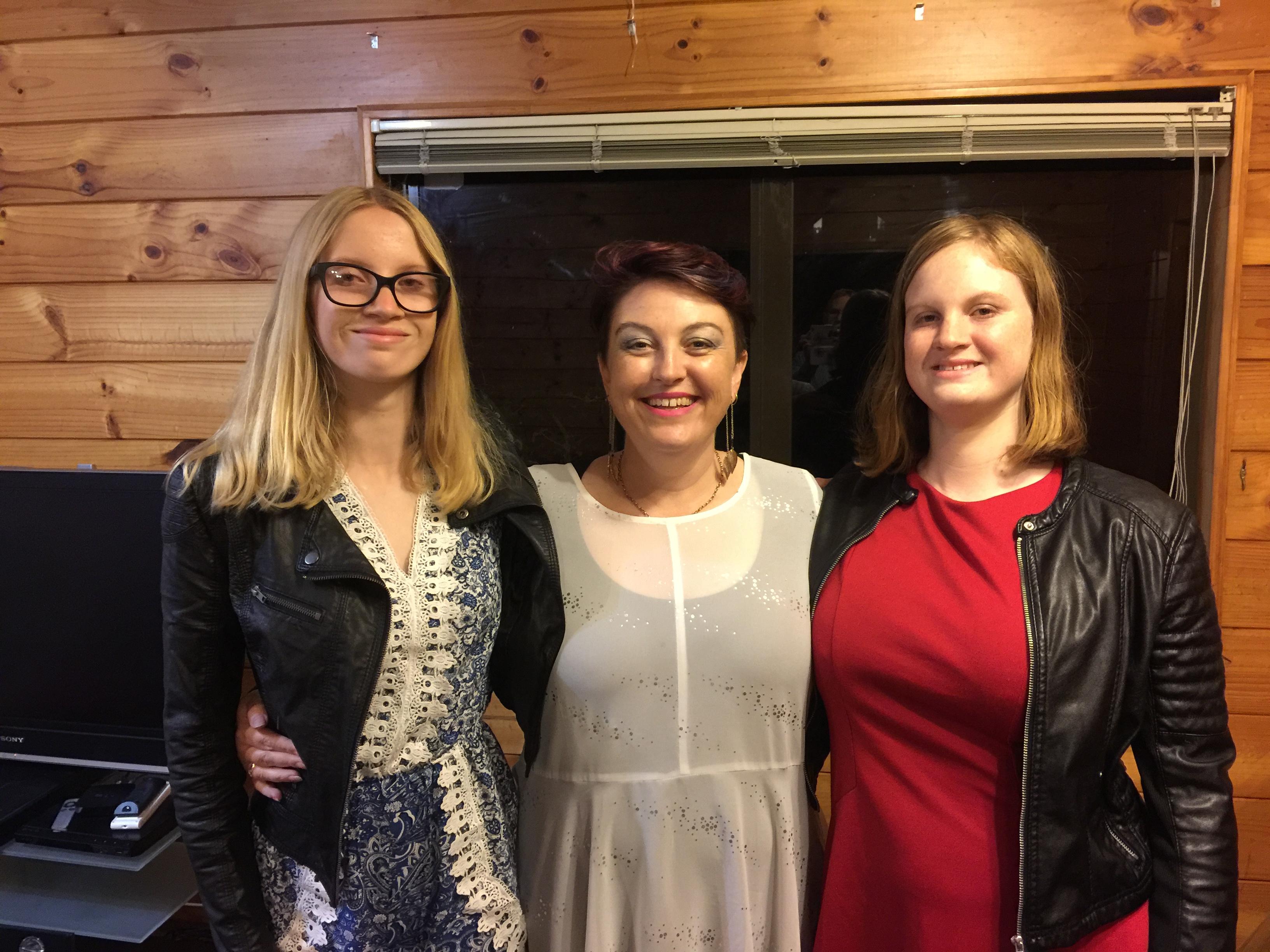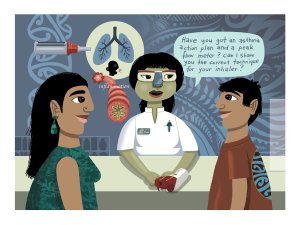Academic pharmacist Nataly Martini discusses the medical management of asthma in adults and adolescents, which has evolved to prioritise early anti-inflammatory treatment. She also explains how to improve patient outcomes by proactively identifying poor asthma control and supporting equitable access to education and treatment
Antiepileptic drugs in pregnancy: Why patients need to be warned
Antiepileptic drugs in pregnancy: Why patients need to be warned

Non-subscribers can enjoy this article free of charge
Auckland woman Denise Astill knows the pain of a mother who finds out too late that the medicine she took while pregnant harmed her child.
Mrs Astill was on sodium valproate for epilepsy when, through IVF, she became pregnant.
Prior to the pregnancy, she sought advice from a neurologist and maternal-foetal medicine specialist, both of whom warned her of the neural tube defects sodium valproate could cause.
On their advice, she took folic acid to counteract this risk, but neither doctor explained the potential neuro-developmental effects of the medication.
Research shows children born to mothers taking doses of sodium valproate greater than 800mg/day have, on average, an IQ almost 10 points lower than that of children born to mothers without epilepsy.
“This is something these children will live with for the rest of their lives,” Mrs Astill says, noting the difference in IQ could determine whether a child has an intellectual disability or will be able to live independently as an adult.
The former primary schoolteacher had concerns about her twin daughters’ health from the moment they were born, but it wasn’t until they were seen, aged four-and-a-half, by a geneticist in 2006 that a diagnosis was made.
The former primary schoolteacher had concerns about her twin daughters’ health from the moment they were born, but it wasn’t until they were seen, aged four-and-a-half, by a geneticist in 2006 that a diagnosis was made.
The specialist immediately identified foetal valproate syndrome as the likely cause of the girls’ physical and cognitive symptoms when he took Mrs Astill’s medical history and found out she had been on sodium valproate while pregnant.
Last month, an awareness campaign on the issue was launched by ACC, the Ministry of Health, Health Quality & Safety Commission and Foetal Anti-Convulsant Syndrome New Zealand.
According to material supplied by ACC, all antiepileptic medicines carry risk of harm to foetuses, but sodium valproate carries the greatest risk, with a reported rate of congenital malformations of up to 24 per cent for babies exposed to doses greater than 1500mg/day.
The difficulty is sodium valproate is also known to be the most effective antiepileptic medicine, and it may be necessary for patients to take it if their epilepsy cannot be controlled by lamotrigine or levetiracetam, antiepileptic drugs which are less likely to cause foetal abnormalities.
ACC chief clinical advisor Peter Robinson says it is important for warnings around the use of antiepileptic drugs in pregnancy to be delivered in a safe way.
“We don’t want people fearing their medications,” Dr Robinson says.
He is concerned fear could prompt pregnant women to stop taking antiepileptic drugs, or alter the dose, without medical supervision, which could lead to uncontrolled seizures harmful to both mother and child.
The four organisations involved in the awareness campaign have developed information booklets for clinicians and patients which stress the importance of full disclosure of the risks associated with taking antiepileptic drugs in pregnancy, as well as the need for such pregnancies to be planned, with medical input.
GPs are advised to identify and annually review female patients who take antiepileptic medicines.
According to Pharmac dispensing data, more than 28,500 women of childbearing age took antiepileptic drugs in 2016. Overall, the drugs were prescribed to nearly 71,000 female patients.
According to Pharmac dispensing data, more than 28,500 women of childbearing age took antiepileptic drugs in 2016. Overall, the drugs were prescribed to nearly 71,000 female patients
Mrs Astill says some of those patients may be oblivious to the risks of taking antiepileptics during pregnancy, if they have been taking them since childhood.
That’s why it is important for healthcare professionals to discuss the risks with girls who take these medicines and their caregivers, she says.
Patients who have been prescribed antiepileptic drugs for pain or mental illness may also be unaware of the risks associated with them, Mrs Astill says.
In 2008, Mrs Astill’s daughters became the first people with foetal valproate syndrome to be covered by ACC, when the corporation accepted that Jazmyn and Natasha had suffered a treatment injury.
Despite seeking medical advice and asking the right questions, Mrs Astill was not fully informed of the risks linked to taking sodium valproate while pregnant, and so had not given informed consent to take the drug.
Concerns about possible teratogenic effects of sodium valproate were present even when Reckitt & Colman received consent to market the drug, known as Epilim, in New Zealand in 1975. However, it took nearly 40 years before the first clear warning against prescribing Epilim to women of childbearing age was published by Medsafe, in December 2014.
Since the 1970s, it has been well established that anti-epileptic medicines like sodium valproate are associated with congenital malformations, cognitive impairment and behavioural difficulties.
Based on numbers of live births to mothers on sod-ium valproate, Mrs Astill estimates up to 1200 babies may have been harmed in utero by the drug since it was introduced here. ACC currently provides cover for 18 people, from infants to adults, with foetal valproate syndrome.
Dr Robinson says each case is likely to cost the corp-oration $1 million for support provided over a lifetime.
For Natasha, ACC cover provides a teacher aide for 20 hours a week to support her education at a public high school. The 16-year-old recently passed NCEA Level 1.
Her sister, Jazmyn, is working towards the same qualification at a small private school.
Mrs Astill says Jazmyn struggled in a mainstream school, but ACC would not fund private education, so the teenager’s grandmother is helping to pay her tuition fees.
Mrs Astill went back to teaching part-time after Jazmyn and Natasha were born; but, since her daughters were diagnosed with foetal valproate syndrome, her full-time commitment has become advocacy for New Zealand families affected by such syndromes.
“[Those families] have to fight for everything, so they’re grateful to have a voice,” says Mrs Astill, the executive officer of Foetal Anti-Convulsant Syndrome New Zealand.
“Above all, we have formed our own family of people who understand what it’s like to go through something like this.”





